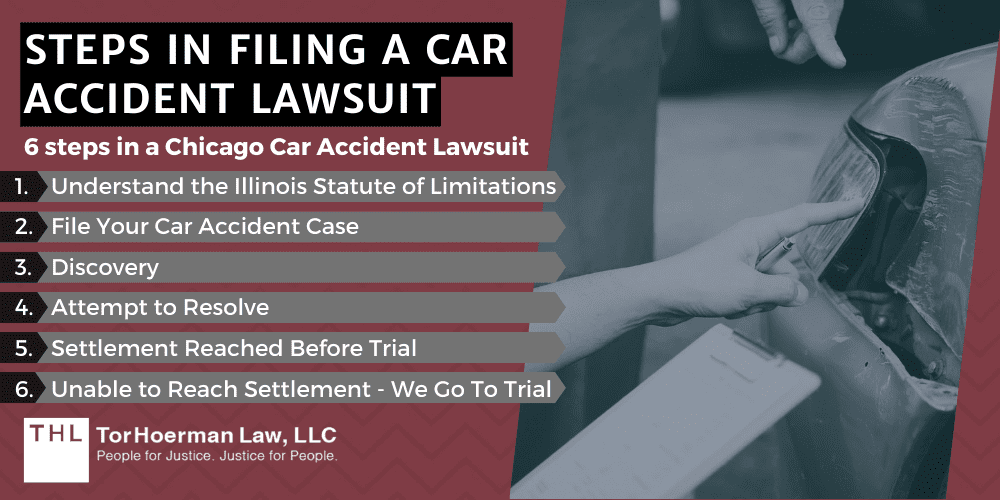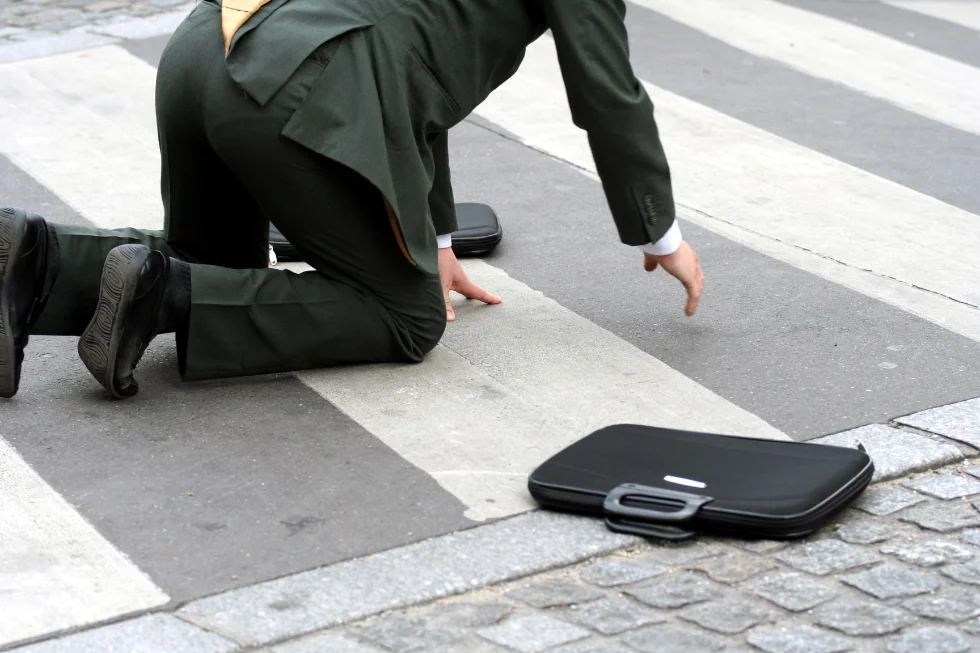Filing a Lawsuit for Car Accident
Car accidents can be traumatic and life-changing events. If you or a loved one has been injured in a car accident, you may be eligible to file a lawsuit to recover compensation for your damages. Deciding whether to pursue legal action after a car accident is not always an easy decision. But if you have been seriously injured, a lawsuit may be the only way to get the compensation you deserve.
Steps involved in filing a lawsuit
The steps involved in filing a lawsuit for a car accident can be complex and time-consuming, so it’s important to have a clear understanding of the process before you get started. The first step is to gather evidence to support your claim. This may include medical records, police reports, witness statements, and photographs of the accident scene. Once you have gathered your evidence, you can file a complaint with the court. The complaint will outline your legal claims and the damages you are seeking. The defendant will then have an opportunity to file an answer to the complaint. After the answer has been filed, the discovery process will begin. During discovery, both parties will have the opportunity to request documents and depose witnesses. Once discovery is complete, the case will be ready for trial. However, many cases settle before going to trial.
How to choose an accident attorney
If you are considering filing a lawsuit for a car accident, it’s important to choose an experienced and qualified accident attorney. An experienced attorney will be able to guide you through the legal process and help you get the compensation you deserve. When choosing an attorney, it’s important to consider their experience, their track record, and their fees. You should also make sure that you feel comfortable working with the attorney and that you trust them to represent your best interests.
What are the chances of winning a car accident lawsuit
The chances of winning a car accident lawsuit depend on a number of factors, including the severity of your injuries, the strength of your evidence, and the skill of your attorney. However, even if you have a strong case, there is no guarantee that you will win. Insurance companies often have a lot of resources at their disposal, and they will fight aggressively to avoid paying out claims. That’s why it’s important to have an experienced attorney on your side who can help you get the compensation you deserve.
What are the benefits of filing a lawsuit
There are a number of benefits to filing a lawsuit for a car accident. First, a lawsuit can help you recover compensation for your damages. This may include compensation for medical expenses, lost wages, pain and suffering, and other damages. Second, a lawsuit can help you hold the at-fault driver accountable for their actions. Third, a lawsuit can help raise awareness about the dangers of reckless driving.
Filing a Lawsuit for a Car Accident: A Guide to Your Rights
If you have been involved in a car accident, it is important to know your rights and options. Filing a lawsuit may be necessary to recover compensation for your injuries and damages.
When to File a Lawsuit
Generally, you have a limited amount of time to file a lawsuit after a car accident. This time limit varies by state, so it is important to contact an attorney as soon as possible to discuss your options. In most states, the statute of limitations for filing a personal injury lawsuit is two years from the date of the accident. However, there are some exceptions to this rule. For example, if you are a minor or if the defendant is out of state, you may have more time to file a lawsuit.
Do You Have a Case?
Before you file a lawsuit, you should first determine whether you have a valid claim. To have a valid claim, you must have suffered some type of injury or damages as a result of the car accident. You must also be able to prove that the other driver was negligent and that their negligence caused your injuries or damages. In most states, you must prove negligence by showing that the other driver:
– Owed you a duty of care.
– Breached their duty of care.
– Caused your injuries or damages.
– Your injuries or damages were a direct result of the other driver’s breach of duty.
What Damages Can You Recover?
If you are successful in filing a lawsuit, you may be able to recover compensation for your injuries and damages. This compensation can include:
– Medical expenses
– Lost wages
– Pain and suffering
– Emotional distress
– Property damage
– Loss of enjoyment of life
Filing a Lawsuit for a Car Accident: A Comprehensive Guide
If you’ve been injured in a car accident, you may be wondering if you should file a lawsuit. While it’s a big decision, knowing your rights and potential compensation can empower you to make an informed choice.
Damages You Can Recover
In a car accident lawsuit, you can recover compensation for a variety of damages, including:
- Medical expenses: This includes all costs associated with your injuries, such as hospital bills, doctor’s appointments, and rehabilitation.
- Lost wages: If your injuries prevent you from working, you can recover compensation for the wages you’ve lost.
- Pain and suffering: This type of damage compensates you for the physical and emotional pain you’ve endured as a result of the accident.
- Property damage: If your car was damaged in the accident, you can recover compensation for the cost of repairs or replacement.
The Pain of Suffering (A deeper dive)
Pain and suffering is a significant part of any car accident lawsuit. It can be difficult to quantify, but it’s just as real and deserves just as much compensation as your medical expenses or lost wages. Pain and suffering damages aim to make you whole again, both physically and emotionally. They can compensate you for:
- Physical pain, such as headaches, back pain, and chronic pain
- Emotional distress, such as anxiety, depression, and PTSD
- Loss of enjoyment of life, such as the inability to participate in activities you once loved
- Disfigurement or scarring
- Loss of consortium, which is the loss of companionship and support from your spouse or family due to your injuries
Your attorney will help you document your pain and suffering and present evidence to support your claim. This may include medical records, testimony from family and friends, and a journal where you track your pain levels and emotional struggles.
Filing a Lawsuit for a Car Accident
Have you been injured in a car accident that wasn’t your fault? If so, you may be wondering if you should file a lawsuit. In this article, we’ll provide you with all the information you need to know about filing a lawsuit for a car accident, including how to choose an attorney, what evidence you’ll need, and what the process will be like.
Choosing an Attorney
The first step in filing a lawsuit is to choose an attorney. It’s important to choose an attorney who specializes in car accident cases and has a track record of success. You should also make sure that you feel comfortable with your attorney and that you can communicate with them easily. Besides, an experienced car accident attorney will be able to advise you on whether or not you have a strong case, and they will be able to help you maximize your compensation.
Gathering Evidence
Once you’ve hired an attorney, they will begin gathering evidence to support your case. This evidence may include:
–
–
–
–
–
Filing the Lawsuit
Once your attorney has gathered all of the necessary evidence, they will file a lawsuit on your behalf. The lawsuit will be filed in the court that has jurisdiction over the accident. The lawsuit will set forth your claims for damages, and it will request a specific amount of compensation.
The Process of Filing a Lawsuit
Once the lawsuit has been filed, it will be served on the defendant. The defendant will then have a certain amount of time to file a response. The response will set forth the defendant’s defenses to your claims.
After the defendant has filed a response, the discovery process will begin. During discovery, both parties will have the opportunity to exchange information and documents related to the case. Discovery can be a lengthy process, but it is essential for both parties to gather the information they need to prepare for trial.
If the case cannot be settled during discovery, it will go to trial. At trial, both parties will present their evidence and arguments to a judge or jury. The judge or jury will then decide who is liable for the accident and what amount of damages should be awarded.
Filing a lawsuit can be a complex and time-consuming process, but it is often the best way to get the compensation you deserve for your injuries. If you have been injured in a car accident, don’t hesitate to contact an attorney to discuss your options.
Filing a Lawsuit for Car Accident
Getting injured in a car accident can be a traumatic experience, both physically and emotionally. The aftermath of the accident can be overwhelming, leaving you with physical injuries, medical bills, and emotional distress. If the other driver was negligent and caused the accident, you may be entitled to compensation for your losses. Filing a lawsuit can be a complex and daunting process, but it may be necessary to get the justice and compensation you deserve.
Determining Liability
Before filing a lawsuit, it’s crucial to establish liability. You need to prove that the other driver was negligent and that their negligence caused your injuries. Negligence is defined as failing to exercise reasonable care, which a prudent person would have done under the same circumstances.
Gathering Evidence
Once you have established liability, you need to gather evidence to support your claim. This may include:
- Police report
- Medical records
- Witness statements
- Photographs of the accident scene
Filing the Lawsuit
To file a lawsuit, you will need to draft a complaint and file it with the court. The complaint should include the following information:
- Name of the plaintiff (you)
- Name of the defendant (the other driver)
- Date and location of the accident
- Description of the accident
- Your injuries and damages
- Amount of compensation you are seeking
Discovery Process
After the lawsuit is filed, both parties will engage in a discovery process to exchange information and evidence. This process may include:
- Interrogatories (written questions)
- Depositions (oral testimony)
- Production of documents
Trial Process
If your case goes to trial, a jury will hear the evidence and decide whether you are entitled to compensation. The jury will award damages based on the severity of your injuries and the extent of the other driver’s negligence. The trial process can be lengthy and emotionally draining, but it can also be an opportunity to seek justice and hold the negligent driver accountable.
Filing a lawsuit for a car accident can be a daunting process, but it may be necessary to obtain fair compensation for your injuries and damages. If you’ve been injured in a car accident, you should take immediate action to preserve your rights. Here’s a comprehensive guide to help you navigate the process:
Settlement
Fortunately, most car accident lawsuits settle before going to trial. Settling involves an agreement between you and the at-fault driver’s insurance company to resolve your claim for a lump sum payment. The settlement amount will typically cover medical expenses, lost wages, pain and suffering, and other damages related to the accident. Settling can offer a quicker and less stressful resolution compared to going to trial, but it’s crucial to weigh the pros and cons carefully before accepting an offer.





Leave a Reply